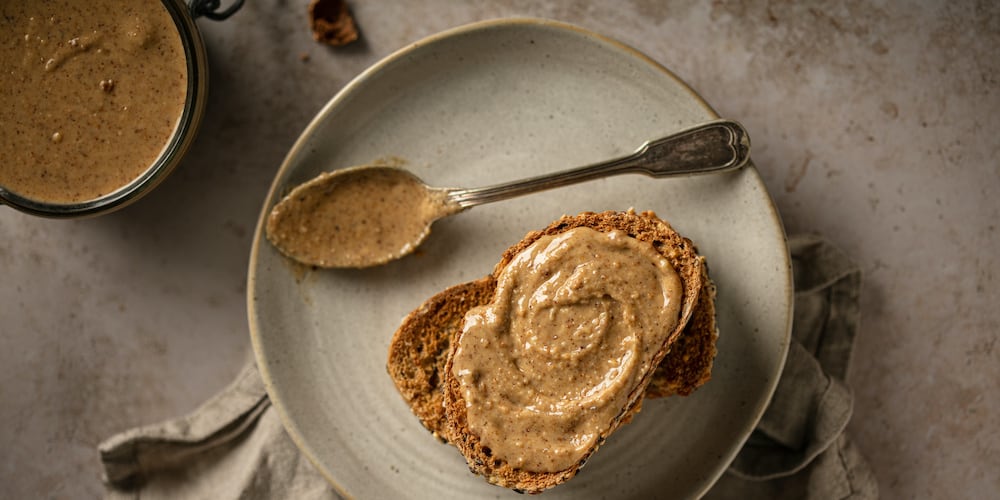Needless to say, butter is an ingredient high in saturated fats. It contains 83 g of fat per 100 g, including 55 g of saturated fatty acids.
With the aim of making our diet more plant-based, we’re also looking at alternatives to animal-derived products, and butter is one of them!
This isn’t about cutting out fat. As we remind in this episode of our podcast, fat is life. So I have selected the best alternatives for replacing butter, which I recommend to my patients and which I explore myself for delicious, healthy cooking.
Try several to discover which ones best suit your needs and your palate.
📚 Read also | A dietitian selected the 3 best meal replacements
1. Olive oil

Sur le podium des huiles les plus utilisées, l’huile d’olive est idéale en cuisine. Elle est riche en acides gras mono-insaturés, considérés comme plus sains pour le cœur et les artères.
Moreover, olive oil contains many polyphenols, which have anti-inflammatory properties.
Mes conseils : utilisez-la pour la cuisson à feu moyen ou faible, ainsi que pour assaisonner les légumes et les salades.
2. Canola, sunflower, sesame, walnut, and flaxseed oils
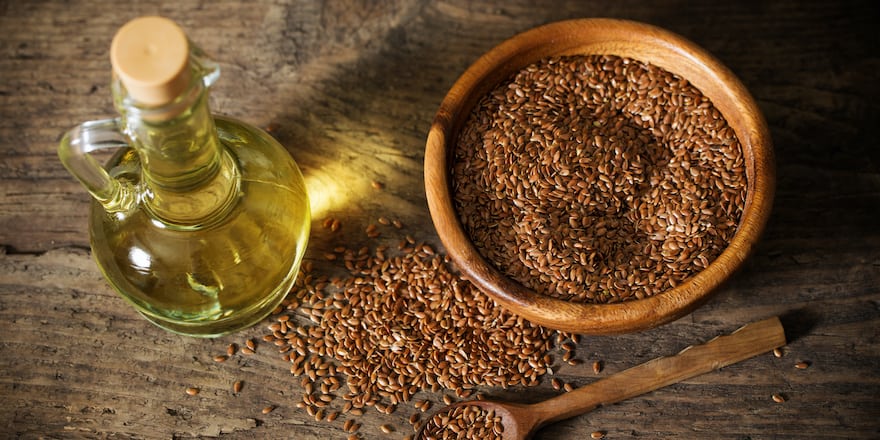
Don’t stop at just olive oil. Feel free to mix different oils, according to your tastes and their benefits. Canola oil, for example, is particularly rich in omega-3s according to this study.
Sunflower oil is ideal for baking thanks to its neutral flavor, and rich in omega-6.
Sesame oil, walnut oil and flaxseed oil have different properties and flavors. However, be careful — they don’t all tolerate heat; I recommend using them mainly raw, for seasoning.
Regarding quantities, I advise you to replace 100 g of butter with 80 g of oil.
3. Margarine
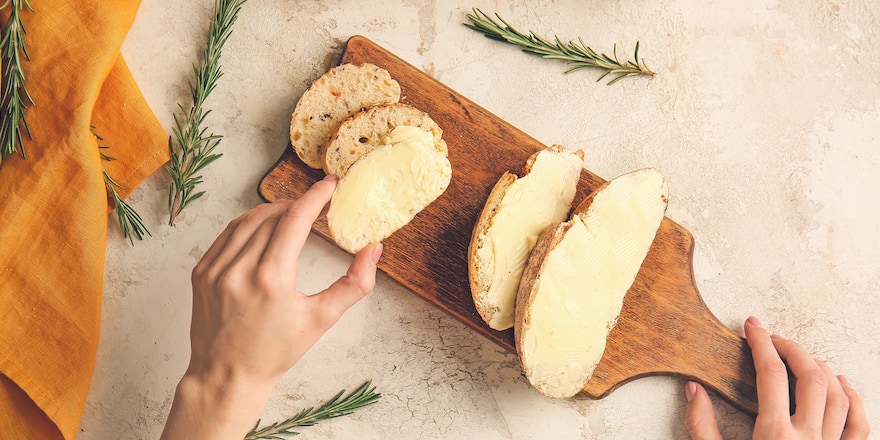
Margarine, for its part, is an emulsion of water and vegetable oil stabilized thanks to emulsifiers that allow it to harden.
It can be an interesting alternative to butter if you choose it without palm oil and with the best omega-6 to omega-3 ratio.
Furthermore, studies have shown that using margarine instead of butter could help limit cholesterol.
4. Nut and seed butters
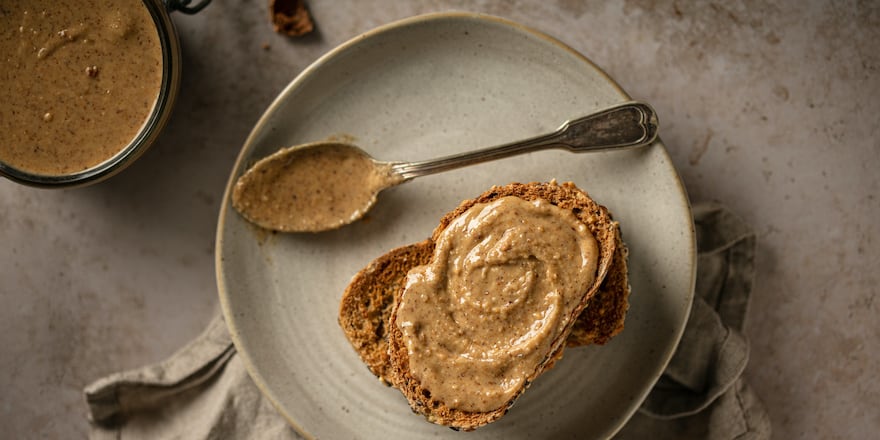
I love almond butter, peanut butter or cashew butter; I find they are excellent options, rich in healthy fats, protein and fiber.
Spread them on bread, add them to smoothies or use them as an ingredient in sweet and savory recipes.
I recommend choosing unsweetened and unsalted versions to avoid excess sugar or sodium and to make them easier to cook with.
If you try it, replace 50 g of butter with 50 g of nut butter, you’ll gain flavor while keeping the moistness.
5. Applesauce
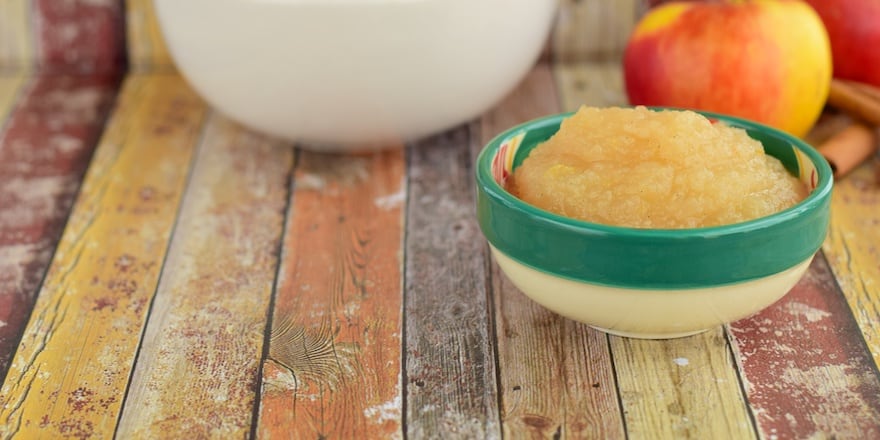
Enfin, si vous cherchez à réduire votre apport calorique tout en maintenant le moelleux du beurre, la compote de pommes non sucrée peut être un choix astucieux.
Elle est naturellement sucrée et ajoute une touche de douceur aux recettes, tout en remplaçant le beurre. Vous pouvez l’utiliser dans la cuisson de muffins, de gâteaux et même pour faire sauter des légumes.
I also recommend using it to reduce the fat content of sauces and dressings.
6. Zucchini
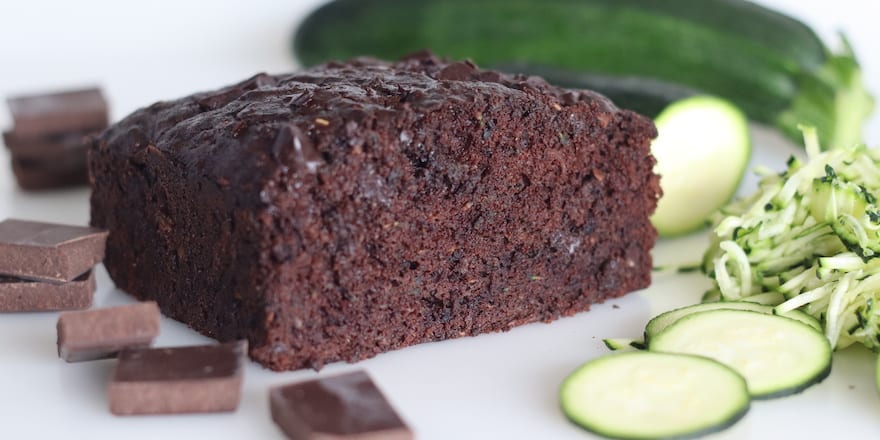
Replace butter with a vegetable? And yes, I often replace butter with zucchini. Grated, it blends perfectly into your cake batter.
Elle apporte une texture moelleuse aux pâtisseries et croyez-moi il est impossible de démasquer ce légume vert, un bon moyen de faire manger des courgettes aux enfants.
I use it in my cakes at home by replacing 100 g of butter with 80 g of grated zucchini, it’s delicious.
Sources and scientific studies
Monika Gorzynik-Debicka, Paulina Przychodzen, Francesco Cappello, Alicja Kuban-Jankowska, Antonella Marino Gammazza, Narcyz Knap, Michal Wozniak, Magdalena Gorska-Ponikowska, 2018. Potential Health Benefits of Olive Oil and Plant Polyphenols.
Junjun Shen, Yejia Liu, Xiaoling Wang, Jie Bai, Lizhong Lin, Feijun Luo, Haiyan Zhong, 2023. A Comprehensive Review of Health-Benefiting Components in Rapeseed Oil.
T Seppänen-Laakso, H Vanhanen, I Laakso, H Kohtamäki, J Viikari, 1999. Replacement of butter on bread by rapeseed oil and rapeseed oil-containing margarine: effects on plasma fatty acid composition and serum cholesterol.


